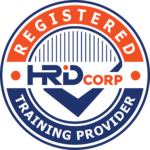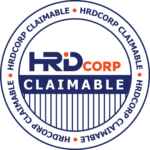ISO 14001 Consultancy
Environmental Management Systems
ISO 14001 is an internationally recognized standard for environmental management systems (EMS) developed and maintained by the International Organization for Standardization (ISO). It provides a framework for organizations to effectively manage their environmental responsibilities and mitigate their environmental impacts.
Key Elements of ISO 14001
Environmental Policy
At the heart of ISO 14001 lies the establishment of a robust environmental policy. This policy serves as a guiding beacon for the organization, outlining its commitment to environmental protection, regulatory compliance, and continual improvement.
Planning
Thorough planning is essential for identifying environmental aspects, such as emissions, waste generation, and resource consumption, and assessing their potential impacts. Based on this assessment, organizations set environmental objectives and targets aligned with their overall business strategy and environmental goals.
Implementation and Operation
This phase involves putting plans into action by implementing environmental management programs, defining roles and responsibilities, providing adequate training, and fostering effective communication channels. It's about embedding environmental considerations into day-to-day operations and ensuring everyone within the organization is aligned with its environmental objectives.
Monitoring and Measurement
The organization must monitor and measure key operations and activities that can have a significant impact on the environment. This includes evaluating compliance with legal requirements and other environmental performance criteria.
Evaluation of Compliance
Regularly assessing compliance with applicable legal requirements and other requirements to which the organization subscribes.
Management Review
Top management must conduct periodic reviews of the EMS to ensure its continuing suitability, adequacy, and effectiveness.
Continual Improvement
The organization should strive for continual improvement in its environmental performance. This involves taking corrective and preventive actions to address nonconformities and improve the EMS.
Benefits of ISO 14001 Certification
Enhanced Environmental Performance
ISO 14001 provides a structured framework for organizations to identify, manage, and reduce their environmental impacts. By implementing robust environmental management systems (EMS) aligned with ISO 14001 standards, businesses can minimize pollution, conserve resources, and mitigate risks, leading to improved environmental performance and sustainability.
Regulatory Compliance
Compliance with environmental regulations is a top priority for businesses operating in today's increasingly regulated environment. ISO 14001 certification demonstrates a proactive approach to environmental management and provides assurance to regulators, stakeholders, and customers that environmental obligations are being met effectively.
Cost Savings
Implementing ISO 14001-certified EMS can result in significant cost savings over time. By optimizing resource utilization, reducing energy consumption, and minimizing waste generation, organizations can lower operational costs, improve efficiency, and enhance profitability. Additionally, ISO 14001 certification may lead to reduced insurance premiums and access to preferential financing options.
Competitive Advantage
ISO 14001 certification enhances marketability and competitiveness by differentiating certified organizations from their peers. Many customers and partners prioritize working with environmentally responsible suppliers, making ISO 14001 certification a valuable asset for attracting new business opportunities, retaining existing customers, and strengthening brand reputation.
Improved Stakeholder Relations
ISO 14001 certification demonstrates a commitment to corporate social responsibility (CSR) and environmental stewardship, fostering positive relationships with stakeholders, including customers, investors, employees, and the community. By engaging stakeholders in environmental initiatives and transparently communicating environmental performance, organizations can build trust, loyalty, and goodwill.
Risk Management
ISO 14001-certified EMS help organizations identify, assess, and mitigate environmental risks, including regulatory non-compliance, environmental incidents, and reputational damage. By proactively managing risks and implementing effective controls, businesses can safeguard their operations, protect their brand, and avoid costly penalties and litigation.
Continuous Improvement
ISO 14001 encourages a culture of continual improvement, driving organizations to set and pursue environmental objectives and targets, monitor performance, and seek opportunities for innovation and optimization. By embracing a mindset of continuous improvement, businesses can adapt to changing environmental conditions, stay ahead of emerging trends, and drive long-term sustainability.
ISO 14001 Certification Is Not an Expense
Some businesses consider ISO 14001 certification as an expense. If you go for the lowest cost option and an off the shelf “cut and paste” solution, then that is all your EMS will be, an expense. You are right in getting comparable quotes on ISO 14001 consultants to get a competitive cost on implementing your environmental management system. However, if only looking at the price and the lowest cost, you are likely end up with a quality consultant who are new to the market and don’t have the right experience. ISO 14001 certification is an investment in your business. A properly designed ISO system will more than pay for itself both financially and through customers satisfaction. Using Miraqle as a partner is a wise investment.


